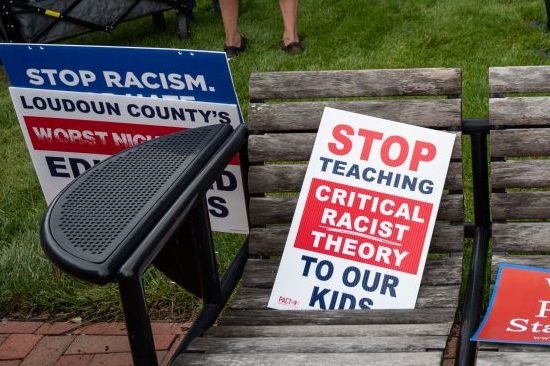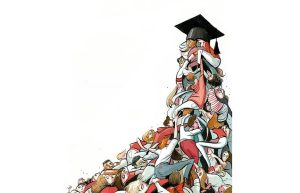While pundits bicker about whether bills targeting critical race theory in schools are ethical or constitutional, an equally important question is whether they’re effective. While such legislation is a workable stopgap to loathsome practices like affinity groups, it can only work as a temporary measure.
CRT is manifested not primarily as a set of explicit ideas to be taught like the freezing point of water or the causes of World War Two. Rather, it’s a philosophy that informs the instruction, curriculum, and policies of various districts. We cannot outright ban CRT from our schools anymore than we can ban the influence of philosopher John Dewey. When the culprit is a belief system, bans are the wrong tool.
Consider Idaho’s bill that bars any educational institution from asking students to classify themselves in activities based on race or encouraging them to adopt beliefs about the inherent prejudices of individuals. Such language would mean no more affinity groups or race-obsessed lesson plans — a success — but what about the bigger picture?
CRT links to a larger philosophy called critical pedagogy, which, in short, conceives of schools not as places of learning, classically understood, but as loci of activism. It manifests in practices like “action civics,” where students spend class periods researching political issues, forming solutions — invariably always big-government ones — and attending protests. In ethnomathematics, students discuss how they can use math to measure their activism or just how important it is to be right. Some critical theorists map the oppressor-oppressed dichotomy onto the student-teacher relationship, and so run their classes based entirely on student choice.
Within this broader philosophy, students do not master skills and acquire the knowledge they need to succeed in the future, but rather now. Banning CRT would have no effect on these practices when the fault is an entire approach to education itself.
Florida’s latest bill improves upon Idaho’s. It bars teachers and schools from indoctrination and persuading students “to a particular point of view.” Even so, a radical philosophy of education can wiggle around these strictures. Would asking students to read Romeo and Juliet through a lens of “race” or “postcolonialism” constitute indoctrination in these legal terms?
And this brief analysis doesn’t even begin to address how critical theory has informed other policies like behavior codes. Critical theorists lambast the use of punitive discipline in education. Before the pandemic shut down schools for a year, there was a trend in larger cities to curtail or even outright ban the use of suspensions. The nation’s most successful charter network dropped its revered slogan “work hard; be nice” because it wasn’t dismantling systemic racism.
CRT bills also fall short because of the amount of classroom instruction that occurs unobserved. At schools where I’ve worked, teachers stick to and deviate from the curriculum like a drunk driver following highway lanes. A supervisor might visit the classroom once a semester, but other than that teachers are autonomous. One review found that most teachers regularly supplement official curriculum with online resources, not a bad practice necessarily but it does mean that much instruction goes unaffected by mandates and curricula.
None of this is to say that CRT bans are bad. They’re just insufficient. If a boat’s hull is rusting or rotting, new leaks will continue to spring even as the crewmen patch up old ones.
To rebut CRT and the umbrella philosophy of critical theory requires that we not only patch up leaks as they appear but replace the hull. It necessitates a reconsideration of policies from teacher licensure to school accreditation, institution building, school choice, standardized testing, and ending the ideological influence that unions and universities have on public education. It will require a monumental overhaul of predominant philosophies of education akin to the federalist movement in our nation’s courts.
Let CRT bills be the beginning, not the end, in the conservative effort to save America’s schools.


















